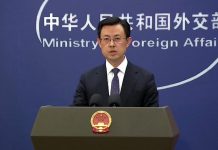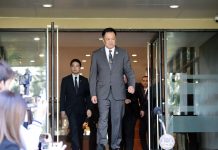New Malay-language television and radio programming in the deep South, initiated by the Thai government, has received a positive response from local residents. It serves as a “voice” to promote better understanding and communication in the southern border provinces that make up a multi-cultural society.
ject, which was officially launched on 3 January 2013 at Yala Rajabhat University in Yala province.
Referred to as “Hari Suara Kita,” or “Voice of the People,” the daily television and radio programming is intended to offer broadcasting services around the clock. Previously, radio programs in Malay had been produced and broadcast by the National Broadcasting Services of Thailand (NBT), operated by the Government Public Relations Department. But listeners are now able to have them on a full scale, following the launching of the project in January 2013.
As for television programming in Malay, it is broadcast via C-band satellite. At the initial stage, the station will broadcast 30 minutes a day and will run 24-hour programming within one year.
The Secretary-General of the Southern Border Provinces Administrative Center, Police Colonel Tawee Sodsong, explained that although the Malay-language broadcasts were introduced by the state, they are considered the people’s strategy. He said that the Malay language is now spoken by 300 million people out of a combined population of 600 million in the 10 ASEAN countries. It is a language which is widely used in the Muslim-majority areas of southern Thailand, where more than two million speak Malay.
He said that this new television station would be a channel for local people to communicate in Malay, a major language in ASEAN, as Thailand and its ASEAN partners move toward the ASEAN Community in 2015. It would open up space for local people and those who have different views from those of the state.
The Southern Border Provinces Administrative Center had constantly sounded out public opinion on the Malay-language television before the project was launched. It held the first meeting on the design of programming on 14 October 2012 in Pattani, with the participation of various groups of people, as the Government intends to develop both television and radio stations into the people’s stations. It has been suggested that local residents be allowed to participate in producing programs that reflect the real voices of the people.
The program content includes news and information about the southern border provinces and beyond, as well as other interesting programs, such as those on education, Islamic affairs, culture, and tourism. It focuses on creating better understanding, easing the people’s suffering, and bringing about lasting peace and harmonization.
Former Secretary-General of ASEAN Surin Pitsuwan said that the introduction of the Malay-language broadcasts shows the respect of a multi-cultural society and would allow people of various groups to discuss significant topics among themselves and seek ways to tackle various problems in the deep South.




